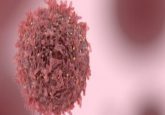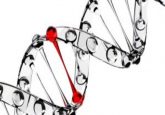Colorectal cancer stem cells could be targeted with novel Wnt inhibitor

A new study has highlighted how a novel Wnt inhibitor may provide a new therapy option for patients with drug-refractory colorectal cancer. The treatment has been shown to inhibit key Wnt signaling involved in cancer stem cell (CSC) growth and expansion.
A research team comprising members of the National Cancer Center (NCC; Tokyo, Japan,) the RIKEN Center for Life Science Technologies (Yokohama, Japan), and Carna Biosciences Inc. (Kobe, Japan) announced the development of this novel Wnt inhibitor, NCB-0846, in the study published recently in Nature Communications.
Annually, colorectal cancer accounts for an approximated 700,000 deaths worldwide, with > 90% of cases of the disease carrying somatic mutations in vital Wnt signaling genes such as the adenomatous polyposis coli (APC) tumor-suppressor gene. Mutations in APC can lead to constitutive activation of Wnt signaling, which in turn results in the production of CSCs that are inherently resistant to conventional forms of chemotherapy.
It is hoped that a therapy designed to block Wnt signaling may eliminate CSCs and allow chemotherapies to treat the disease effectively. Nevertheless, though there is a wealth of data and investment available, use of a Wnt inhibitor has not as yet been included as part of clinical practice.
Researchers form the NCC previously investigated components of the T-cell factor-4 (TCF4) and β-catenin transcription complex, and identified Traf2- and Nck-interacting kinase (TNIK) as a key regulator of the TCF4/β-catenin complex [1]. TNIK regulates towards the downstream end of the Wnt signaling pathway, with inhibition of the pathway anticipated to block signaling in APC-mutated colorectal cancer cells [2].
Teams from NCC and Carna Biosciences screened a kinase-focused compound library followed by lead optimizations, thus resulting in the discovery of NCB-0846, which inhibits the kinase activity of TNIK with an IC50 value of 21 nM. Structural analysis carried out by RIKEN discovered that NCB-0846 binds to TNIK to form an inactive conformation, which may be vital to the inhibition of Wnt.
Oral administration of NCB-0846 was demonstrated to suppress the growth of patient-derived colorectal cancer xenografts. The inhibitor also suppressed a variety of CSC markers and activities in the cancerous cells.
“We’re very encouraged by our promising preclinical data for NCB-0846, especially considering the difficulty in targeting this pathway to date, and shortly we hope to conduct a clinical trial at the NCC hospitals,” stated author Tesshi Yamada (Division of Chemotherapy and Clinical Research, NCC). NCB-0846 is currently under preclinical development with the aim of Investigational New Drug filing.
Sources: Shitashige M, Satow R, Honda K, Ono M, Hirohashi S, Yamada T. Regulation of Wnt signaling by the nuclear pore complex. Gastroenterology. 134(7), 1961–1971 (2008); Shitashige M, Satow R, Jigami T et al. Traf2- and Nck-interacting kinase is essential for Wnt signaling and colorectal cancer growth. Cancer Res. 70(12), 5024–5033 (2010); National Cancer Center Japan press release





